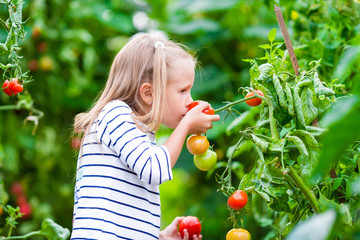January and February Virtual Organic Conferences and Events
Organic Confluences Summit: Equity and Access in AgTech
The Organic Center and Purdue University are organizing a free Organic Confluences Summit on Equity and Access in AgTech, which will take place on February 10, 2022. The program is listed below.
Register at https://us02web.zoom.us/meeting/register/tZUqc-mgrjkqGNUd2knY-r74ZJD4nPbXPGdo
Read about the speakers here
- 9:00am Welcome / Opening Remarks
- 9:10am How AgTech intersects with food sovereignty and racial justice, Samir Doshi, Stanford
- 9:30am Equity in AgTech with OpenTEAM, Laura Demmel Gilmer, OpenTEAM (Moderator), Crystal Arsenault, Islands Organic Producers Association
- Pablo Munoz Ledo, LookInto, LaKisha Odom, FFAR
- 10:30am The Invisible Gender: The right for women to farm, Karen Washington, Rise & Root Farm
- 10:50am From Farms to Incubators: Women Innovators Revolutionizing How Food Is Grown, Amy Wu, From Farms to Incubators
- 11:10am Race, Power and Wealth: The Other Side of Digital Technology in Agriculture,
- Erik Nicholson, Padion Strategy
- 11:30am Simplified Technology- Skills Before Tech, KaZoua Berry, Big River Farms
- 11:45am Regenerating Definitions: Re-envisioning Ag from an Indigenous perspective,
- A-dae Briones, First Nations Development Institute
- 12:05pm The Peril and Prize of AgTech: Case Studies from the Global South, Jade Algarin, USDA NRCS
- 12:20pm Chemical Treadmills and Agricultural Inequality, Brian Williams, Mississippi State University
- 12:40pm Increasing Technological Accessibility for Small Farms, David Selassie Opoku, Growing Gold Farms Subsistence Farmers & The Pursuit Of Human Dignity
- Jacki Perkins, MOFGA Shared-Use Farm Equipment Program, Wade Miller CROPP Cooperative Cooperative structure for increasing tech access
- 1:40pm Incorporating Tech into Organic Ideals, Gwendolyn Wyard, Organic Trade Association
This conference is the second of a 2-part series; in December, the first part took place: Connecting AgTech and Organic. The recording of that conference is available, along with the agenda and speaker bios, at https://www.organic-center.org/AgTech.
Organic Seed Growers Conference: Session Details Now Available
The session details are now available for the Organic Seed Growers Conference, and it looks to be one of the best yet with over 150 speakers! The entire conference will take place virtually on the Organic Seed Commons platform from February 4-11, 2022 and, you can view the session details and register here. eOrganic has been honored to work with the Organic Seed Alliance and their partners to serve on the organizing committee for this gathering of seed growers, farmers, gardeners, researchers and enthusiasts of seed crops, organic seed, seed sovereignty, and seed saving. We’ll come together for eight days of roundtables, panels, demonstrations, farm tours, lightning talks, art and music, regional meet ups, keynote presentations, and celebration, with many opportunities to share skills and network! Registration is on a sliding scale, and we hope you can join us!
Webinar: Organic Grass Fed Dairy: Demographics, Management, and Cost of Production
In 2018, the University of Vermont received an USDA OREI Grant to Advance Grass-Fed Dairy: A Whole Systems Approach to Enhancing Productivity, Quality, and Farm Viability in the U.S (OREI 2018-51300-28515). One primary objective was to understand the economic and production metrics for grass-fed dairy systems through implementation of a national survey, production and economic benchmarking on farms in VT and NY. This session will describe the characteristics and demographics of grass-fed dairy farms from our national survey, including herd sizes, acreage, and management systems. We’ll then take a deeper look at some of the data from our smaller northeast region surveys which include the grass-fed cost of production (cost per cwt) and more detail on farm management and production. Presenters are Heather Darby and Sara Ziegler of the University of Vermont, and Sarah Flack of Sarah Flack Consulting. Register here.
This is the first of 3 webinars in early 2022 on Grass-fed dairy production, so check our schedule for the others at https://eorganic.org/node/4942!
Webinar: Advancing Equity through Food and Nutrition
The National Agricultural Library’s Agricultural Law Information Partnership is hosting a virtual two-part event on January 27th, from 11:00 am-3:00 pm ET. Laurie Beyranevand, Director of the Center for Agriculture and Food Systems at Vermont Law School, will share legal and original research to address equity in the food system. Then, Rev. Dr. Heber Brown III, founder of the Black Church Food Security Network, will talk about connecting churches and Black farmers to create alternative food systems that address systemic issues of racism and climate change.
The afternoon session consists of an optional Wikipedia editing training session and editing time to focus on food systems and food insecurity. A full schedule and speaker bios can be found on Eventbrite. Please register. Full-day attendance is not required.
More Virtual Organic Conferences in January and February
- PASA Virtual Pre-conference January 4-28, 2022 (in-person main conference is February 10-12.)
- NOFA/Mass Winter Conference January 15-16, 2022
- NOFA-NY’s 40th Annual Winter Conference: January 18-23, 2022
- NOFA-NJ’s 31st Annual Winter Conference: January 30-31, 2022
- Real Organic Project Symposium: Jan 30 and Feb 6, 2022
- NOFA-NH’s 20th Annual Winter Conference: February 6-12, 2022
- OEFFA Conference: hybrid format: February 12 online, February 17-19 in person
- CT-NOFA’s 40th Winter Conference: February 14-26, 2022
- Organic Vegetable Production Conference February 3,4,7,8
- NOFA VT Winter Conference: February 17-March 5, 2022
- EcoFarm is now March 14-18, 2022








